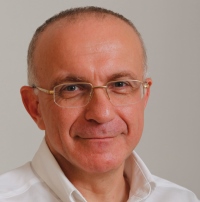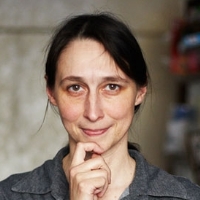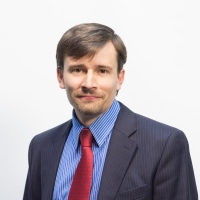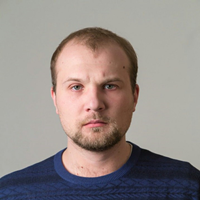HSE Continues its Ascent in QS World University Rankings by Subject
The latest results of the QS World University Rankings by Subject demonstrate that Russian universities are continuing to make great strides in international rankings. Among the Russian universities that made the rankings, HSE tops the list with 16 specific subjects and 3 broad subject areas entering the rankings. Compared to last year, HSE has improved its performance in almost all subjects.
.png)
The latest results of the QS World University Rankings by Subject demonstrate that Russian universities are continuing to make great strides in international rankings. Among the Russian universities that made the rankings, HSE tops the list with 16 specific subjects and 3 broad subject areas entering the rankings. Compared to last year, HSE has improved its performance in almost all subjects.
Notably, HSE ranked among the top 100 universities in three specific subjects—‘Sociology’, ‘Politics and International Relations’, and ‘Economics and Econometrics’—as well as the broad subject area of ‘Social Sciences and Management’. HSE is the undisputed leader among Russian universities in these subjects.
Furthermore, Russia increased its representation in the rankings from last year across the board with 31 Russian universities entering the list. 10 Russian universities now rank among the top 100 universities in 16 broad subject area ratings. Thanks to the universities’ participation in Project 5-100, a Russian academic excellence project designed to strengthen Russian universities’ international competitive edge, Russian institutions of higher education have significantly increased their presence in the subject and faculty rankings. Today Russian universities are represented in all five of the QS broad subject area rankings and in 34 of the 38 QS specific subject rankings. Of these, Russian universities participating in Project 5-100 entered the top lists in 25 specific subjects.
In more than half of the cases—namely, in 10 subjects—HSE entered the top 150. In 7 of them HSE ranked in the 101-150 range. In 2 subjects, ‘Mathematics’ and ‘Philosophy’, HSE maintained its same ranking from last year, while it improved its ranking by more than 50 spots in 4 subjects. These subjects were ‘Accounting and Finance’, ‘Business and Management’, ‘History’, and ‘Linguistics’. HSE climbed the rankings most dramatically in the subject of ‘Education’ where it rose 150 spots from last year and became the top ranked Russian university in the subject.

Isak Froumin, Head of the HSE Institute of Education
‘Such a significant climb in the rankings is due to the fact that the QS rankings in Education are based not just on academic reputation but scholarly output within the last five years. An academic reputation takes decades to build up, so it’s more difficult for younger universities to compete for high positions in the rankings. Six years ago, when the Institute of Education was founded at HSE, there was still little research in that area by Russian scholars, and this was clear to those outside of Russia. The Institute began increasing its scholarly output and strove to produce advanced research in correspondence to international standards. Thanks to the dramatic increase of published scholarly research in leading international publications, HSE is already comparable to top 50 QS ranked universities.’
HSE entered the ranking in ‘Psychology’ for the first time, which was expected given its placement in the THE ranking, where it ranked amongst the 151-175 range, taking second place after Lomonosov Moscow State University. In the current QS ranking, where the 300 best universities for the study of psychology are ranked, HSE ranked among universities in the 201-250 range, and among Russian universities, it ranked first.

Maria Falikman, Head of the School of Psychology
‘Department staff who came to HSE a decade ago as young scholars and teachers are becoming recognizable and quoted authors in the international sphere of psychological science. We see the name of our university more and more often in leading journals on the psychology of identity and motivation, social and cross-cultural psychology, cognitive psychology, and psychophysiology. Our faculty has been joined by new colleagues who are established professionals in the various fields of psychology as well as young promising colleagues who present their research at large international conferences and are able to attract students at the same time. The School’s Bachelor’s programme is becoming more and more popular, attracting strong applicants from all over Russia and CIS countries, and our Master’s programme attracts students from all over the world. I think our new QS ranking is the result of many years of consolidated efforts of the entire team; everyone does everything within his or her power to increase our scholarly output and to make the teaching of psychology more exciting at HSE.
In other subjects, HSE moved into higher ranking ranges, increasing its ranking by more than 50 spots from last year in each of the following specific subjects: ‘Law’ (151-200 range), ‘Modern Languages’ (151-200 range), and ‘Computer Science’ (201-250 range).
And, finally, this year, HSE regained its lost position in ‘Communication and Media Research’ (ranking in the 151-200 range) and became the leader among Russian universities in this field.

Iliya Kiriya, Deputy Dean of the Faculty of Communications, Media, and Design
‘The main reason why we have managed to enter the ranking is that we maintain a balance between training that is quite practical and rigorous academic study. It is no secret that students come to study media and communications at HSE first and foremost for the training we offer in applied skills, which enable them to be sought-after experts in a rapidly changing industry. However, amid the applied disciplines and hands-on student projects of our programme, the academic, theoretical, and research-oriented core of our programme (demonstrated in research projects) allows us to foster both student and faculty interest in research. And we think that we manage to maintain this balance between the number of teachers who are practicing professionals in the field and teachers who are research-focused. As a result, our scholarly input continues to increase and be published in leading journals, and this in turn has increased our citation rate, which of course has a positive effect on our rankings. We also continue to host international academic events and participate in international events, which of course also have a positive effect on the academic reputation of HSE, and in this subject area, that is a key component of the rating.’
The recently opened Faculty of Physics was quick to make its presence known by entering the QS specific subject ranking in ‘Physics and Astronomy’ (placing in 551-600 range). Earlier, in the autumn of 2018, HSE entered the THE ranking in this general subject area for the first time as well.

Sergey Zavarin, Deputy Dean of the Faculty of Physics
‘In our case, the result is largely due to bibliometric measures, which is expected given that the vast majority of our colleagues are active scientists who publish in leading journals that are indexed in Scopus. Over time, our scientific output will only increase. It is important to note that the biggest factor (40%) in the QS final ranking in physics is the department’s academic reputation, which is objectively difficult to develop when your department has only existed for two and a half years—our first Bachelor’s and Master’s cohorts have not even reached graduation yet. Nonetheless, we are actively working on this; students and faculty take part in collaborative research projects and scientific educational events with both Russian and foreign colleagues, which enables us to view our progress in the rankings optimistically.’
In the broad subject area rankings, HSE maintained its place among the top 100 in ‘Social Sciences and Management’, ranking 75th. In ‘Art and Humanities’, HSE climbed 67 spots to 153rd place, and the university also improved its place in ‘Engineering and Technology’, ranking among universities in the 451-500 range.
It should be noted that this year’s progress is qualitatively different from previous years. If HSE previously rose in the rankings mainly due to the reputation factor, while its scholarly output—traditionally a weak spot for Russian universities—lagged behind a bit, its scholarly output has caught up with the average international level. It is mainly this, along with the continued growth of HSE’s academic reputation, that improved its standing in the rankings.
In recent years, despite increasing competition, Russian universities have shown steady progress in these rankings. Every year, results confirm that Russian institutions of higher education are becoming more effective and prestigious. While 24 Russian universities made the rankings in 2018, 31 Russian universities entered the rankings in 2019—and participants of Project 5-100 have played a significant role in this.

